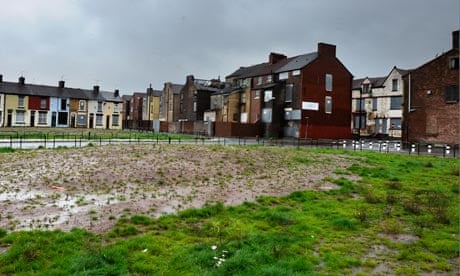Incredible though it may seem, the most dubious statement concerning Liverpool this week may not actually have emanated from Echo and the Bunnymen's Ian McCulloch. If you missed McCulloch's contribution, delivered in the course of a celebrity video message to Tom Hicks, he suggested to the American owner that his dealings with Liverpool have been the equivalent of raping his own family – "all of them, at once, over a long period of time".
But repress that image of a hydra-phallused Hicks because, across town, Liverpool city council was declaring the club's new owners should stick to the commitment to build a new stadium in Stanley Park, because the edifice "is a key part of our plans to regenerate north Liverpool." No doubt it is, and no doubt the plan is impeccably intentioned… and yet, given this is the week for removing rose-tinted spectacles, it might be time clinically to re-examine the assumption that such a project would automatically bring huge benefits to the local community.
This isn't remotely to suggest the area isn't in need of help. In pockets of Liverpool Walton, the constituency in which both Anfield and Everton sit, unemployment runs at 43%, so you can quite understand proselytisers for the project claiming it would generate jobs. It certainly sounds right. But is it?
Alas, the modern orthodoxy that building sporting infrastructure is an engine of economic growth is deeply questionable in practice.
No one wishes to pre-empt the definitive report on the halo-effect of Delhi's estimated $15bn (£9.46bn) spend on the Commonwealth Games, so let's consider the 2012 Olympics, sold from day one as the answer to East London's problems. Last year, a freedom of information request revealed the Olympic project had taken a grand total of 115 locals from the five host boroughs off the dole – but had forced the closure or relocation of businesses employing 1,245 staff. Given the Olympic Park is currently costing £1.1bn, it doesn't seem to be the most fantastic value for money – but then, we long ago tumbled down the rabbit hole. Even when the Olympic bid was merely a twinkle in New Labour's eye, bigwigs would frequently justify their support on the basis the Games would result in the London Underground being modernised. Does £9.3bn seem reasonable to sort out the Tube? You must be the judge.
Whenever large-scale sports projects are proposed, evangelists waffle about "intangible" benefits – so we must thank economists Dennis Coates and Brad Humphreys for producing some chasteningly tangible work on the subject. A few years ago, these US academics undertook a major study into whether sports-led urban redevelopment spurred local economies – and their overwhelming conclusion was that it doesn't. Analysing data from 37 major US cities, they found that "the net economic impact of professional sports in [the 37 cities] that hosted professional sports teams over nearly 30 years, was a reduction in real per capita income over the entire metropolitan area." In a report which could have been subheaded Everything You Thought You Knew Was Wrong, the pair found that pro-sports facilities had a negative impact on the retail sector of a local economy, caused an average net loss of jobs… it goes on.
America is not entirely analogous to the UK, in that most arena construction in the US is taxpayer-funded – but the distinction might blur significantly in the case of Liverpool, where the council has agreed to sign away a large piece of public parkland to a private commercial venture, in a deal which will also secure many millions of pounds of government (ie taxpayer) funding. If only Messrs Coates and Humphreys could undertake a UK equivalent of their study, we might have unsparing facts on which to judge the real worth of such a scheme.
As it is, whenever sport-led regeneration is proposed in this country, the public is fobbed off with stat-free waffle about how it will benefit and regenerate local communities – and in some cases, we seem to be dispensing with even that fig leaf. Only last week, the chief executive of our 2018 World Cup bid explained that England's existing infrastructure made it "a great platform for Fifa to come and make significant profits."
You have to admire the candour. Doubtless the traditional suspension of disbelief and sweetheart deals on public land could be a great platform for the right Liverpool owner to come and make significant profits. But until detailed projections are published, we should hold off swallowing the regeneration line. If Liverpool's courtroom saga underscores anything, it's that asking cynical questions early on can save considerable heartache.

Comments (…)
Sign in or create your Guardian account to join the discussion